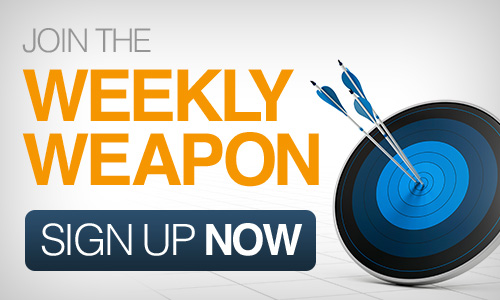Many people shy away from conflict, try to smooth out differences and avoid those uncomfortable moments. I embrace conflict when it arises because I know that the more I know about the people around me, the better hunter I will be. Conflict can be a productive tool that strengthens a team as well as a lesson on how to let go of your ego and see things from another’s point of view.
Workplace conflict can range from small, daily battles to big, fundamental differences. But without resolution or airing those grievances, conflict will escalate. I once consulted with a company that was having real problems dealing with a showdown between its COO and one of it managers. I met with each party individually and heard two entirely different versions of the events that had triggered it. The COO felt the manager was stubbornly refusing to cooperate, and the manager felt a lack of clear vision and guidance on the part of the COO.
Fundamentally, these two were on the same side. They were just unable to see the situation clearly, unclouded by emotions and judgment. They had also stopped listening to each other. Once they were able to acknowledge how they were filtering the situation through their own experiences, they were able to set a target that created common ground. Their collective desire to succeed at a common objective refocused their energy, and the conflict created a tighter bond driving them toward success.
There are five key steps to making conflict work FOR you. Every good hunter knows to do this in the field; now we need to bring these steps to the office and apply them!
Be open to new ideas. Hunters know every hunt is a new experience. They apply existing knowledge but are always ready to learn something new. When you are facing a conflict, open yourself to the opportunity to learn.
Listen. Then respond. Hunters know when to keep their ears open and their mouths shut. It can make all the difference in taking home a trophy. Remember that listening is not waiting to talk. Take notes if you must. But LISTEN.
Lose the ego and put yourself in your opponent’s position. Hunters know empathy is a powerful tool. Imagine yourself as the person across the table and see the situation through their eyes.
Be objective. Hunters work with facts, not emotion. They rely first on information like wind direction, weapon proficiency, and known trails to take down their targets. You need to do the same.
Develop a systematic approach. Hunters know to develop a method to ensure a successful hunt; they do not go off on a whim. When faced with conflict, start with an open mind and a willing ear and leave your emotions at the door.
Hunters succeed by using all their skills and keeping their wits about them. When you do the same in the office, you will achieve more of your desired outcomes and build a strong tribe of hunters who will have your back in the future.

